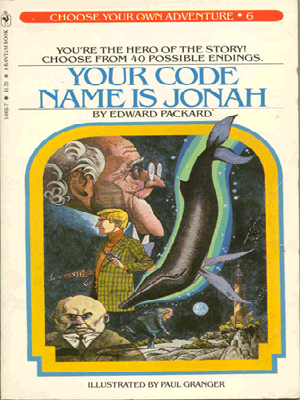Engineering Your Personal Statement Topic: Do Something Worth Writing

(Photo Source: Richard Scott)
“Either write something worth reading or do something worth writing.”
-Benjamin Franklin
Saturday Morning Crisis: “What Should I Write My Personal Statement About?”
My phone rings suspiciously early on a Saturday morning. After reeling in my Blackberry by its power cord, I finally find the courage to confront the blinding light of the phone’s screen. Caller I.D. reveals that it is my cousin. As a junior in college, he is in the process of studying for the LSAT so that he can apply to law school next fall. I have a feeling that I know exactly why he is calling.
“Mike, I know it’s early, but can I ask you a question?”
“Is it about the LSAT or applying to law school?”
“Yeah, how’d you know?”
He proceeded to ask me what he should write his law school personal statement about. He explained that he believed that his work experience wasn’t impressive enough, especially because he had never worked in any legal capacity. All he had was a strong interest in criminal law, one year of mock trial experience, and a handful of undergraduate “pre-law” courses.
I tried to help him brainstorm ideas; however, he was convinced that he didn’t have enough to write about. But with over nine months left before he had to submit his law school applications, I knew exactly what advice I should give him.
You’re the Hero of the Story! Choose From 40 Possible Endings.

Many clients tell us that they have nothing interesting to write about. This is usually not true, and we have had great success with helping applicants realize how they can use their existing experience to write an excellent personal statement. This is the “write something worth reading” part of Benjamin Franklin’s quote above.
But what if you really feel that you have absolutely nothing interesting or relevant to write about? This is where the “do something worth writing” part of the quote comes in.
You may remember choose-your-own-adventure books from your childhood. The idea behind these books was that you were the hero of the story. While reading, you could, in a sense, write the rest of the story. You were in control of your own fate as the story progressed.
This concept of controlling your own fate applies equally to writing your personal statement. Your personal statement is not limited to your past experience. In fact, it can be whatever you want it to be. If you have a few months before you have to submit your applications, then you can “choose your own adventure” by using this time to gain additional experience that you can write about in your personal statement.
Finding Something Worth Writing About
Step One: Develop a Theme
You have decided to seek additional experience to write about in your personal statement. Before you can do this, it is critical that you develop a theme that connects your future experience to your desire to gain admission to college, graduate school, or law school.
For example, after brainstorming with my cousin, we were able to come up with an excellent theme that connected his past experience, his future experience, and his desire to attend law school.
Here is the outline of his personal statement:
- Our uncle is a police officer, which piqued his interest in criminal justice.
- For this reason, he pursued a criminal justice major in college with the intention to ultimately become a police officer.
- While taking criminal law classes at college, he became extremely interested in the legal side of criminal justice.
- He joined his school’s mock trial team, which he had a natural talent for.
- Future Experience: he will obtain an internship with his county’s prosecutor’s office or a local criminal defense attorney, which will tie all of his past experience together and undoubtedly explain why he wants to attend law school.
Here are other examples of themes and their corresponding future experience:
- Want to write about why you want to pursue public interest law? Spend one day per week for the next six months volunteering at a free legal clinic. Share a story about one particular client’s legal problems, how the clinic improved his life, and how this solidified your desire to help others.
- Want to write about why you want to go to business school? Start a simple business and then write about how that experience gave you unique insight into the challenges and rewards of being an entrepreneur.
- Want to write about why you want to study journalism in college? Volunteer to write for your local independent newspaper.
Step Two: Realize that Your Theme Isn’t Binding
Although my cousin is currently passionate about studying criminal law, he asked me what would happen if he later changed his mind about his preferred area of law.
The secret is that, as long as your experiences are legitimate, no one will ever hold you to what you write in your personal statement. If you change your mind about your career, major, or area of specialty, no one will ever say, “Wait a minute, he wrote about being interested in criminal law, but now he is interested in employment law? Rescind his law school admission!”
You have the right to change your mind. Pick a good, plausible theme that makes sense, even if you have doubts that it will be your ultimate passion.
Step Three: Get the Experience
Experiences must, of course, be legitimate and listed on your resume. So how do you go about getting the internship, job, or volunteer position that you need to complete your personal statement? You can start by mailing out physical mailings with a cover letter, resume, and a list of references.
There are two things true about most professionals: 1) they love to mentor those who are interested in their career, and 2) they love free help.
After mailing these items out, it is imperative that you follow up with a phone call asking if they received your resume. If there are no paid positions available, state your desire to volunteer one day per week to gain experience.
You should also use your network to try to find your desired position. Are you still in college? Contact your school’s career counseling center. Are you in any professional clubs? See if any members know of anyone whom you can work for. Did you do well in any relevant courses? Ask that professor if he or she can help you out.
Capitalize on Other Benefits
In addition to providing you with something to write about in your personal statement, gaining more experience can benefit you in other ways. You can list the experience on your resume, and you can also get a letter of recommendation from the person who supervised or hired you.
More importantly, you will have made professional contacts in the field that you may ultimately work in. These people can serve as mentors as you pursue your degree. They may also be able to help you secure summer or post-graduation employment.
Hopefully this article has provided you with a plan of attack if you have absolutely no clue what to write about. Remember that there is still time and that your personal statement can be whatever you want it to be. And if you need help along the way, Gradvocates is here to help.


